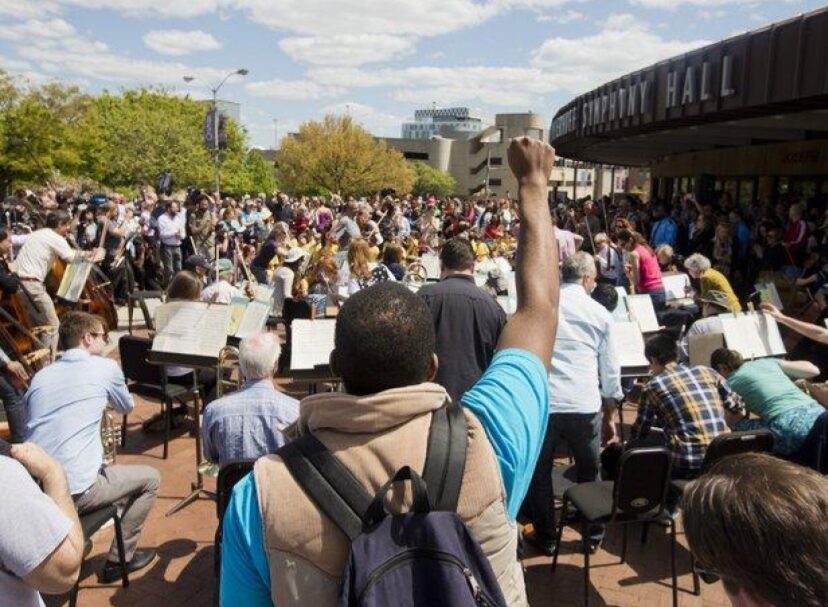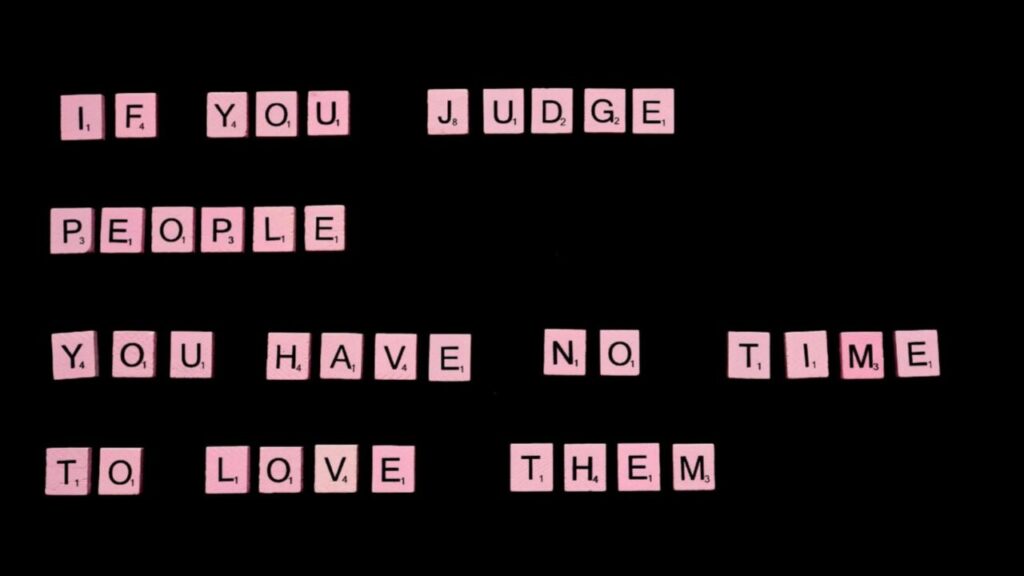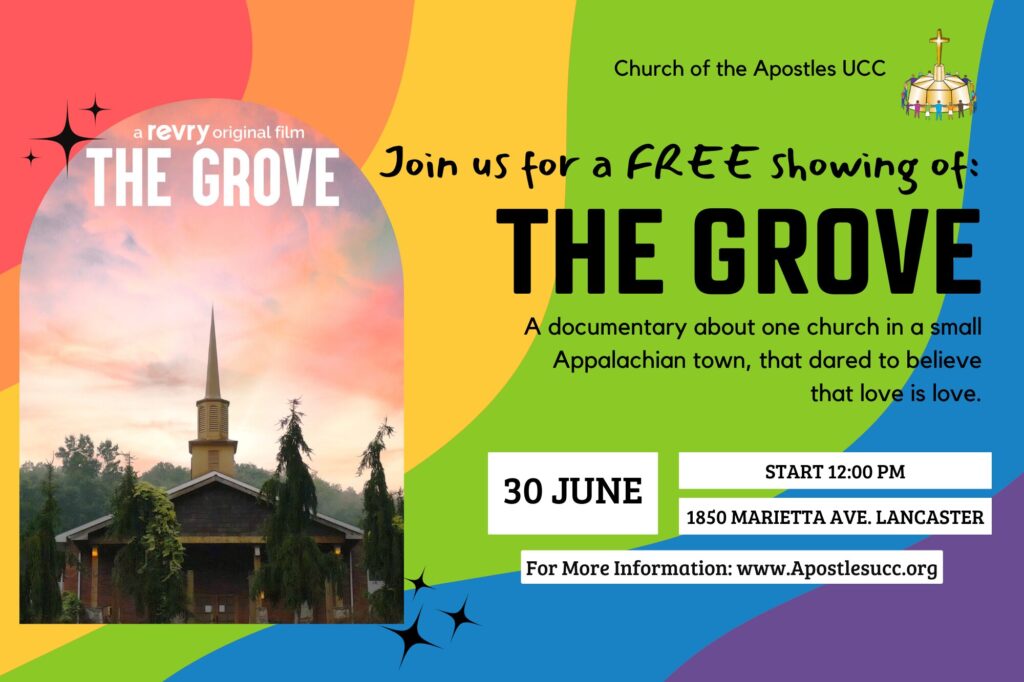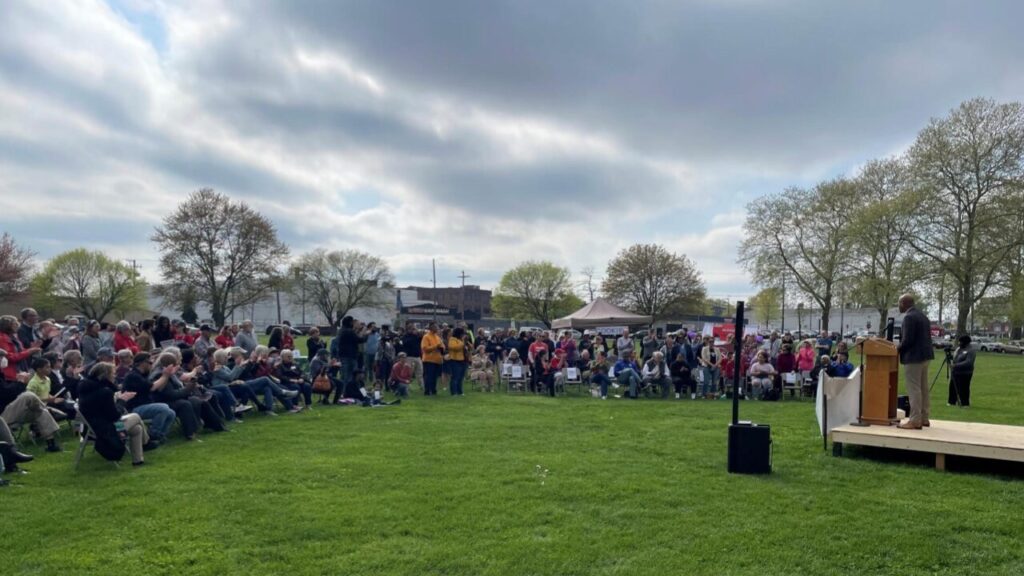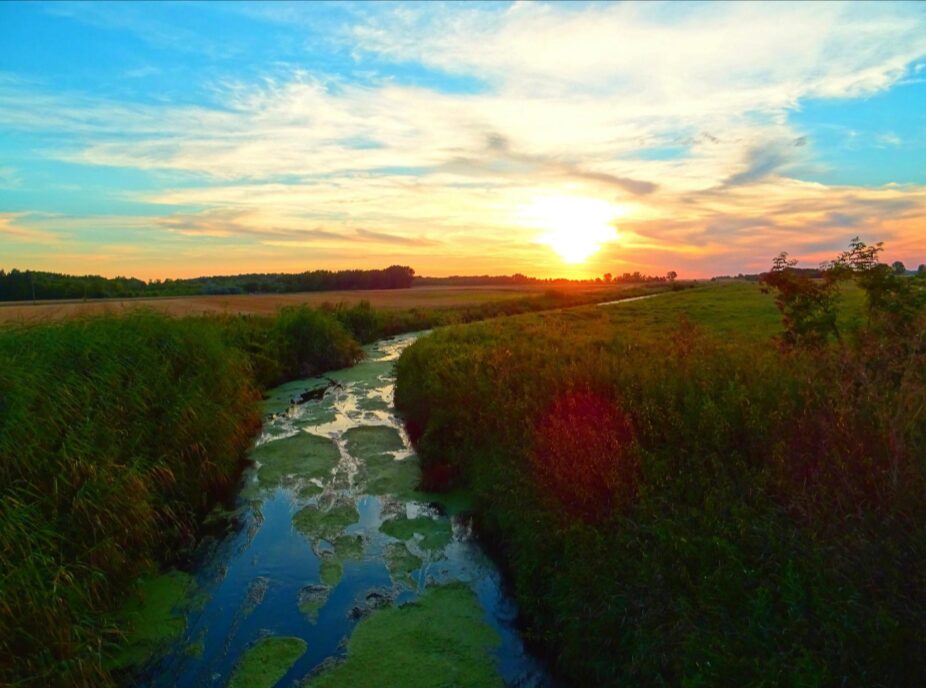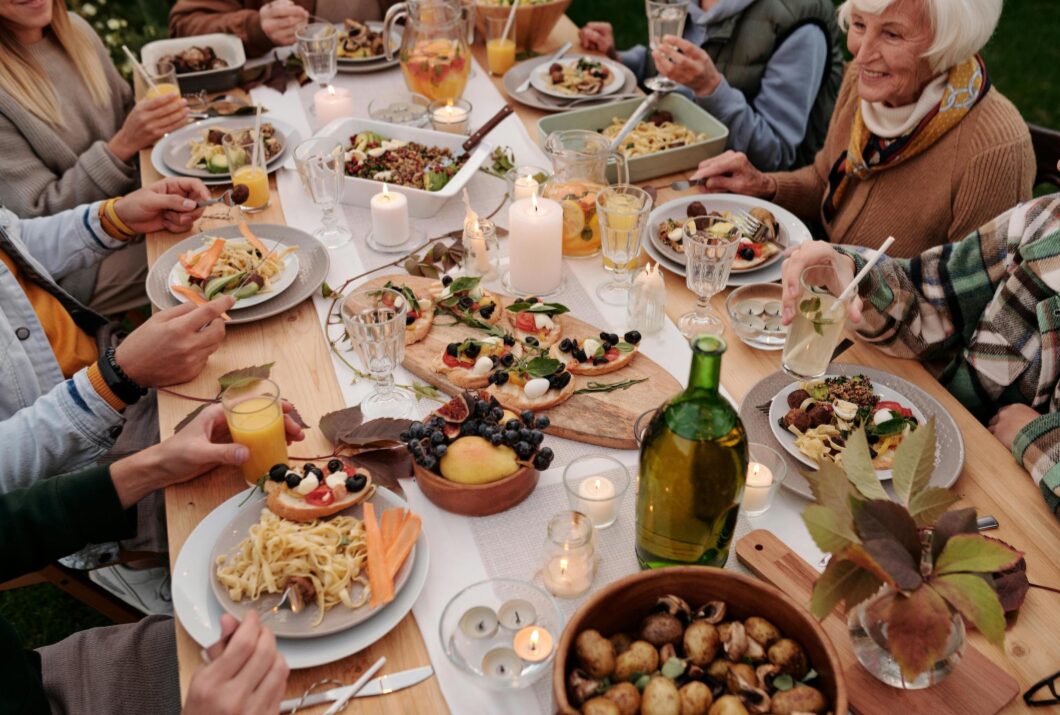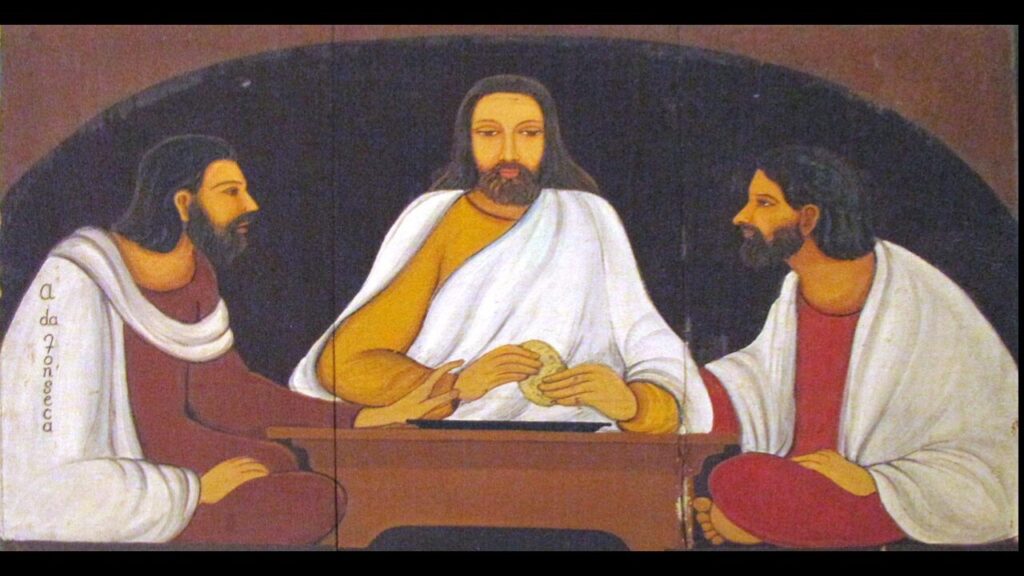God of Abundance
I first want to revisit a moment that we had last week when Jonathan was ordained. Because this is a moment that we really need to celebrate.
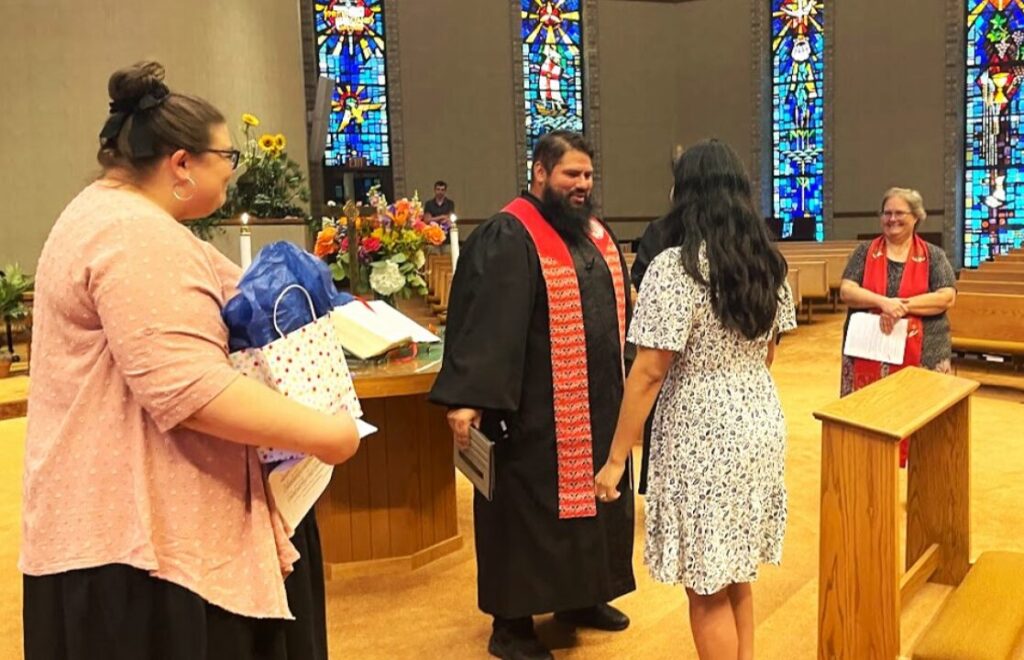
I want you to feel how important you were in this journey of his to this moment. It’s quite an honor when one of our own reaches that point where they are ordained. It was a great celebration for us.
I took this picture right after Lucy had put the stole on him. That is one of those once in a lifetime moments. You only get your first stole put on you once. That’s why it was so important. I coached Lucy so she knew what she was doing. She was really nervous about it, but it was so important for that to happen for them.
I want to lift up Jonathan, because Jonathan was like the farmer, who, while he was with us, was planting seeds. He planted seeds of love and joy with this entire congregation. With each person he met. As he had events that he was running, he empowered people. He planted seeds with people to take ownership of it and to grow it and to carry it out. He supported them in doing that and he lifted them up. He equipped them for the ministry. He was a seed planter among us. Even if that’s not how you saw him, I just want to name that that is what he was.
Last year, I preached on the parable of the sower, and I used this image, and Jonathan was really struck by this image.
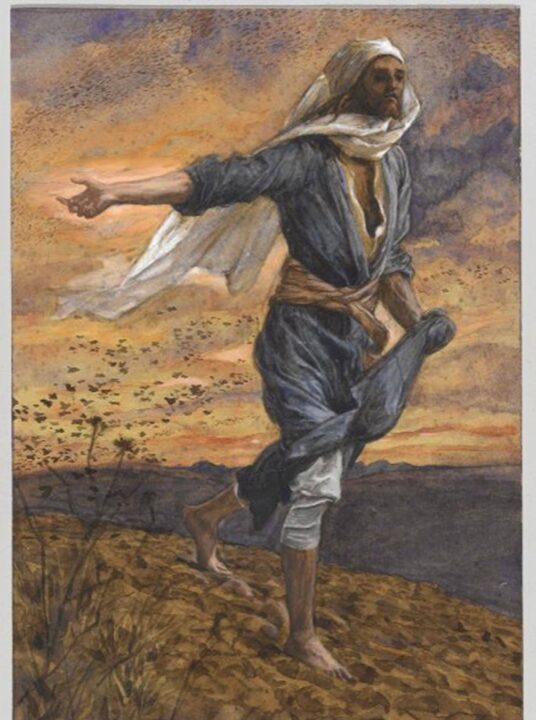
I bring it up again, because we are transitioning to not having Jonathan around anymore. That is bittersweet. We are so happy for him and wish him the best in Connecticut. But I want to name that we also miss him.
But in this picture, the farmer is just frivolously planting seed, just throwing it out with abandonment. That’s not the way most of us who farm or raise gardens plant seed. We don’t just walk and throw seed. Because we want it to produce a crop.
This has been a very frustrating year for me as a farmer. Because we planted three rows of corn and three ears came up. In my first planting three rows, I got three stalks. So we planted again. Now, I’ve got about a row and a half.
A lot of it has to do with rain. We look for just the right soil. We get in there, and we pull all those weeds out and we churn up that soil. I admit, we have a rototiller, so before I plant, I make David go through it at least once so that that ground is really ready. We want to have that good soil.
But that’s not what God does. God just doesn’t do that. Plants everywhere. To see what happens. What I want us to talk about is, what does that tell us about who God is?
A lot of us know the Parable of the Sower. We know where it’s heading. I bet you could tell me where it’s heading. But what if we focus on what it tells us about God? Right?
The normal way to explain this, which, if you keep reading in Mark, Jesus goes on to tell us how we’re supposed to understand it. That we’re supposed to look at the different types of soil as our lives. It sort of leaves us with this, so clean up your life.
You clean up your life so that you’re ready for the seeds that God’s scattering.
If God is scattering this seed everywhere, I just want you to stop and think, does God really care that your life is already cleaned up and the perfect soil before God scatters seeds with you? When I think about that question, my answer comes down to, God accepts all the conditions of our lives.
Whether we’ve got it all together and we are the best soil waiting for God’s seeds or whether our lives are a mess. Some of us, our lives are a mess. Some days are better than others. Right? I think God accepts us and loves us and throws seed our way, whether we’re together or not.
So for those of us who’ve been felt like you were told by the church that you’ve got to get your life together so that you’re acceptable to God, I want to tell you, you’re worthy for God just as you are.
If your life is such that there are circumstances that are beyond your control, whether it has to do with health or situations that have happened that put you in a place that you wish you weren’t. God understands all of that. God loves us in whatever condition our lives are.
But if you’re doing really well, and you think that you’re running your life, well then, maybe we do need to look at our lives. Maybe we do need to look and see if we are allowing others to run our lives. To come in and choke out the good ideas and the good works and the Word of God that God is trying to plant in our lives.
Maybe we need to be more vigilant at paying attention to our lives.
Who are we listening to? Are we listening to people that are feeding us lies? That are just trying to divide us and make us angry? Or are we listening to words that move us to offer God our praise, to work towards love, hope, joy and peace?
Is there evil that is talking to us, that is trying to get our attention? If you prefer evil, evil personified then is Satan, I’m not fond of that, but is Satan trying to lure you away from God, from your relationship with Jesus?
A lot is happening right now about Christianity being conflated with our patriotism. So, I wonder if you believe that only real Americans are Christians, Do you look at the world and see the beauty of the diversities God has created? Or are you afraid that as white Americans, Christians, we’re losing something? Because they’re two very different postures.
If we’re afraid, there are people that will take advantage of the fact that we are afraid and they will make us more afraid. It’s what they will do so that they can run our lives. Or we can make sure that we are open to God’s love, joy, and peace and that we are peacekeepers. That we are the ones who are sharing love, who are helping groups come together, helping people come together.
Are we building communities, or are we dividing communities? Are we inviting people in, or are we pushing people out? Those are the things that we need to think about in our lives. Are we making our world smaller, or are we trying to expand? Because, I believe that we worship an expanding God. This God of Abundance.

This was a picture of my garden and some sweet peas that were not weeded. You know, God didn’t care that I didn’t weed that patch. Right? God would have seeded it anyway. Sometimes we’re even the seed. As I talked about Jonathan spreading seeds, sometimes, we’re the seed to take the word. Sometimes we need to be the farmer that’s sharing the word of God with others. Those that we share it with don’t have to be perfect. We can love everyone just as they are.
So the question is, what seedlings will we nurture?
Our mission and vision statement that we voted on last fall was that we believe that God is calling us to be inclusive and generous, to be a safe space for those who feel powerless and afraid. So, are we trying to nurture the little seedlings among us, those who are struggling with what to believe and how to follow Jesus? Or, are we judging people to make sure that they are the right soil? Whatever that might mean.
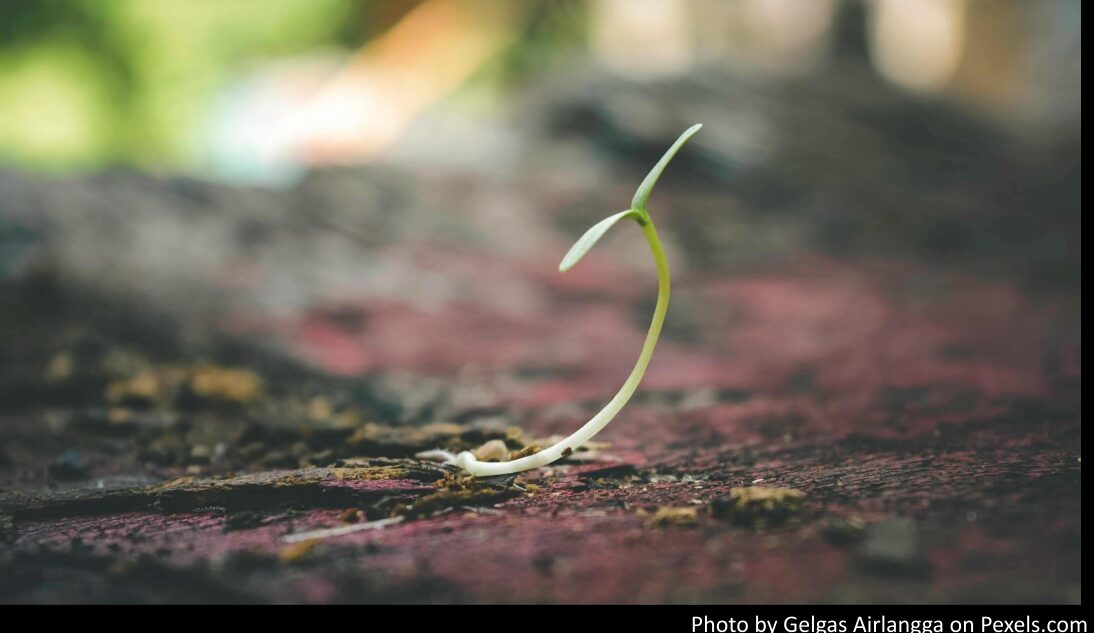
I think in those phrases, we are naming that we are not afraid. It’s the most repeated phrase in the Bible, do not be afraid. Our mission and vision statement implies that we are not afraid. That we want to live out our calling by God to love others. That we welcome those who are looking to learn about Jesus without requiring them to change.
Jesus reached out and invited people to know another way of living. That is what we are to do, to invite others to know the love we have found. To invite another to find the support we have found. To invite another to experience Christ’s grace and peace, and invite another to find community here.
